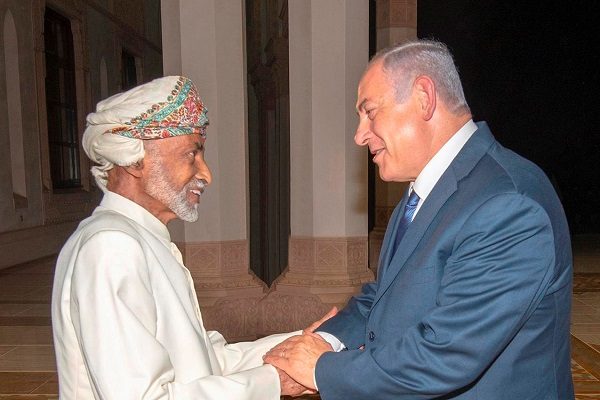Foreign Ministry Arabic-language platforms have accumulated hundreds of millions of video views since the beginning of 2017.
By Aryeh Savir, TPS
Israel’s Foreign Ministry has launched a virtual embassy for Arab social media users in the Gulf states.
The social media page, which has been reactivated, is aimed at advancing the dialogue between Israel and the peoples of the Gulf states, against the background of the growing interest in Israel by Arabic-language surfers and their positive reactions to the Jewish State.
“We are pleased to announce the re-launching of the ‘Israel in the Gulf’ page to promote dialogue between Israel and the peoples of the Gulf,” the Twitter account stated Tuesday. “We hope that this virtual embassy will contribute towards deepening the understanding between the peoples of the Gulf states and the people of Israel in various fields.”
This latest move is part of the Foreign Ministry’s Digital Diplomacy, which includes several pages on social media platforms in Arabic and pages in Persian on popular platforms used by Iranians. These pages have a total of hundreds of thousands of followers, and the content published in the Persian language goes every week to more than two million readers.
On the Arabic-language platforms, the Ministry of Foreign Affairs has accumulated hundreds of millions of video views since the beginning of 2017.
“Israel in Arabic” shares information related to current political and security developments, but its main purpose is to use social media to share a side of Israel that is seldom shown in the Arab world, the Ministry has explained.
Israel in Arabic achieves this goal by providing followers with a wealth of information and video content, covering a myriad of aspects of Israeli history, politics, culture, and society, it says.
The Digital Diplomacy Arabic Language team uses a number of creative and interactive approaches to share content with users, including infographics, videos, photographs, and caricatures.
One of the most successful examples of this is a series called Din and Hassan in which Din – a Jewish Israeli – and Hassan – a Muslim Israeli – teach Arabic followers the Hebrew language. The series was created after the team received numerous requests from individuals interested in learning Hebrew.
Since the beginning of 2017, there has been an 87-percent increase in the number of followers on Instagram and a 34-percent increase in the number of followers on Twitter. The number of YouTube viewers on the Foreign Ministry’s channel has doubled.
Israel in Arabic’s success has traveled well beyond the confines of Facebook, earning coverage within the Arabic media and attracting the attention of government officials across the Middle East. Hamas has even warned Gazans against using these pages.
Israel MFA maintains more than 800 online channels in 50 languages.




